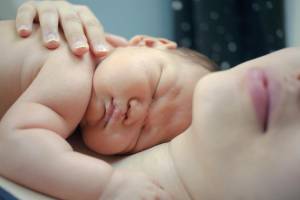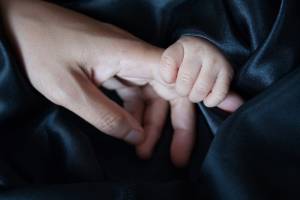
This March we make it our mission to celebrate the influence of mothers in our society and the unconditional love and affection they offer us every day, and to remember the mums that even if are no longer with us, continue to live in our memory and into our hearts.
There are no words to describe the amount of love that unravels in our hearts when we think of the person we call ‘mum’. The work involved in raising a child is enough to scare anybody off – you have to have a multitude of skills to be able to perform a few different roles: cleaner, cook, professional night story reader and so on; it really does ‘take a village’!
The tradition of celebrating Mother’s Day started in the UK ever since the 16th Century. Mothering Day as it was called then, meant people in domestic jobs would be allowed to go back to their ‘Home Church’, or as it was known, ‘Mother Church’ for Laetare Sunday — the fourth Sunday of Lent . This was a reason for celebration, as this would be the only day of the year when families could be reunited, because servants would only be allowed to be away from their duties on Laetare Sunday.
Supposedly, children would, on the way to the church, pick up flowers on the road, making up flower bouquets and giving them to their mothers – hence the gift giving tradition. Later, in the early 1900’s in the US, Anna Jarvis pushed for Mother’s Day to be recognised as an official day. Her late mother was a social activist fighting for peace and friendship before she passed away, and Anna, in trying to honour her memory, managed to make Mother’s Day a recognised celebration. The meaning of the date, at its roots, is to celebrate the mothers and their influence in society.
In 2020, we are focusing on the importance of motherly love. From the moment the baby is born, all you want to do is take care of him/her until you can’t anymore. The mama bear instinct kicks in the moment you realise you’re carrying a baby and it never seems to go away, even when they’re 30 and have their own families to take care of! And even if you haven’t carried this baby of yours, the moment you hold them for the first time, you never want to let go.
Just as much as we don’t want to think that something can ever happen to our baby, we have to be prepared for any circumstances. As much as we’d try and protect them, accidents are part of everyday life, so instead of trying hard NOT to think of emergency situations, we have decided the best call of action is to be prepared.

We have decided to offer a Paediatric First Aid Training for parents and childminders alike, so if is there ever a situation where a child is choking, suffocating or bleeding, they are able to react and help them the most crucial first few second it happens, before the emergency services get there.
We have 2 versions of the Paediatric First aid Training : a 2-day Paediatric First Aid Training Course that’s Ofsted Accredited (for child minders, nannies, au pairs, nursery staff and so on) that need the qualifications as part of their every day job; and a 1-day Paediatric First Aid Training Course that’s aimed at parents that would like to be prepared for any circumstances – the difference being that the 1-day one is not accredited.
The reasons we are running these training courses is because of the number of cases where people attending our First aid Training have asked us what can they do if their kids, or kids they work with, are in immediate danger. Because the topic is too broad for people to get their answer from just a three-minute question; we have created the Paediatric First Aid Training to allow people to get straightforward, helpful training on how to deal with little human emergencies.
The 1-day Paediatric First Aid Training is aimed at mothers and fathers, whilst the accredited 2-day Paediatric First Aid Training is for people that work with and around kids whose job might ask for such an accreditation. We recommend both to whoever needs and wants to learn more about the importance of reacting in the first few minutes.
This March make sure you become the SUPERMUM your kid needs you to be, and get the training that can possibly save your child’s life.
